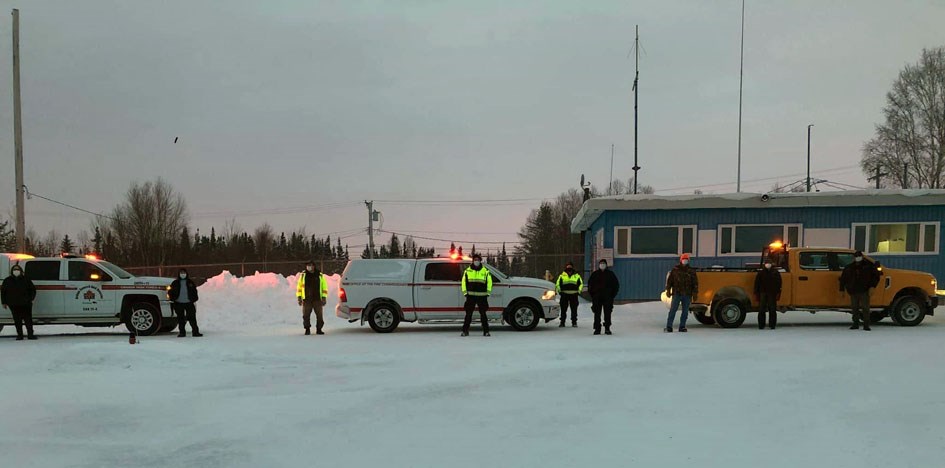Deputy Chief of Wallace District Fire Department, Brent MacDonald, was recently deployed to Lynn Lake with Manitoba’s Urban Search and Rescue (USAR) team to assist this community that was under siege. COVID-19 had temporarily got the upper hand as people fell ill or were in isolation as contacts.
For MacDonald, this was more than another assignment. Lynn Lake, a community about 815 kilometres northwest of Winnipeg, was his birthplace when the mine was a busy enterprise. “I was a mine baby and moved away when I was five. I still have an uncle up there.”
With a family interest there he said, “I’ve been up there a number of times fishing and visiting. It’s always kind of been a special place. So, I wanted to do my part and help get them back on their feet.”
The COVID-19 bulletin on Jan.16 showed 69 new cases in the Northern health region (Lynn Lake and other norther communities) in a 24-hour period. Lynn Lake was declared an outbreak situation and a curfew was established as the town’s COVID dashboard showed 132 active cases in the community of just under 500 people.
“local infrastructure was needing support” - MacDonald
MacDonald’s role was that of safety officer for the USAR team’s work in Lynn Lake.
Upon landing, USAR set up an incident command system in cooperation with the local health system, and established radio communication with Manitoba Emergency Measures organization and the Manitoba government.
The team was there to mitigate the health crisis and serve the community at a time when so many were sick and in isolation. MacDonald said an assessment revealed “the local infrastructure was needing support. It was just because of the contagion level of COVID that even the people that were in support roles were having to isolate as well.”
Besides the town, the community of Marcel Colomb First Nation just 30 kms beyond was also overwhelmed with COVID.
All kinds of ordinary services for both communities, such as water delivery to the reserve, were in jeopardy. In Lynn Lake, the only grocery store within four-hours was down to one or two staff members.
The nearest cell phone tower, also four hours away meant cell phones were not useable there, but when the team arrived, the community had established a system of communication.
“People were putting a colour coded sign in their windows and we were able to assess their needs and start delivering food and medication to the people who needed it the most. We were physically doing shopping and filling orders and delivering it to doorsteps for people.
“For the people who didn’t have the ability to communicate, don’t have internet, email capability, we were able to fulfill that need by picking up an order, dropping it off at the store… and then bring it back to the people.”
Over the 10 days of USAR’s service there, people were coming out of quarantine, being cleared and able to return back to work in the community. Lynn Lake was self-sustaining before the team flew back to Winnipeg.
“The town of Lynn Lake and the community of Marcel Colomb First Nations, they had a great system in place,” MacDonald said. “Their community leaders and their Chief and Council on the reserve had pioneered a lot of the systems. We just helped augment it until they were able to run it by themselves again.”




